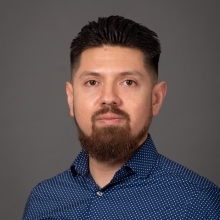I am a PhD candidate in the Department of Neuroscience at the University of Minnesota. I work in the lab of Thomas Bastian. I have A.A. from Fullerton Community College, a B.S. from California State University, Fullerton, and a Master in Biological Sciences (MBS) from the University of Minnesota.
Iron deficiency is the most common micronutrient deficiency in the world and when acquired in early-life, it is a risk factor for long-term neurodevelopment and neuropsychiatric conditions (e.g. ADHD, schizophrenia) and these persistent neurological disruptions occur despite prompt iron treatment. The newborn human brain undergoes rapid development from the end of third trimester to the first 2 years of life, thus requiring much energetic and nutritional support. The region of the brain associated with learning and memory function, the hippocampus, is iron dependent and particularly vulnerable to during this period. Iron deficiency reduces the structural complexity of the hippocampal brain cells called neurons, impairing the ability of the hippocampus to learn and memorize new information. The mitochondrion, dubbed “the powerhouse of the cell,” produces most of a cell’s energy and requires iron for proper functioning.
Energy production is decreased in the iron deficient condition modeled in neuron cultures derived from the hippocampus. To properly respond to a cell’s energy demands, mitochondria also undergo dynamic movements and structural changes, which are collectively termed mitochondrial quality control. My research project aims at testing the mechanistic hypothesis that mitochondrial-targeted therapies that can improve mitochondrial quality control can reverse the impairments observed in iron deficient neurons using an in vitro and in vivo models of iron deficiency.
My work can provide avenues for alternative treatments for iron deficiency and can have implications for biological mechanisms and therapeutic approaches of neurobehavioral/neurocognitive diseases associated with mitochondrial dysfunction. It is my intent to improve patient health through the knowledge I gain through my research interests at the interface of mitochondrial energy homeostasis and nutrition as it applies to optimizing brain development for patients in early childhood to support long-term overall quality of life for pediatric patients.
As I go along my graduate career track, my long-term interests have expanded. I still have much interest in pursuing a career to lead a lab as an independent investigator continuing with my line of interest in optimizing brain development for pediatric patients but am also open to landing a fitting industry position that may align with my experience and research interests.
I recently developed an interest in machine learning and had the opportunity to attend the DL@MBL: Deep Learning in Microscopy Image Analysis course at the Marine Biological Laboratory. My current research project(s) led me to find more efficient ways for image processing and analysis and I want to develop my skills in this area to open more career opportunities to me after graduating. Recently, I’ve also been exploring an interest in a startup idea I’ve had brewing for a couple years now.
Outside of the lab, I enjoy spending as much time as I can with my wife and two small children by taking advantage of and exploring much of the family-friendly seasonal activities throughout the Twin Cities but we especially enjoy ice skating at our favorite frozen pond during winter. I enjoy staying active outdoors with a group of friends in a cross-fit/bootcamp style workout regardless of the weather (e.g. snow, ice, rain) and cycling year-round for my commute. I grew up in the punk and metal scene in Southern California playing electric guitar and bass for various bands. My children have followed suit with a heavy interest in music and are actively learning piano, drums, and guitar.

